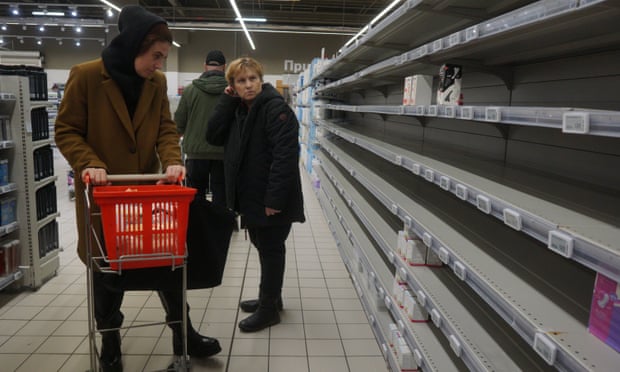With a New President Comes a New Cold War
When I heard President Joe Biden’s State of the Union Address on March 1, I was instantly reminded of Churchill. I had an intuition that Biden’s speech might be remembered as a historic moment that announced the beginning of a new Cold War. He confidently declared that “[F]reedom will always triumph over tyranny. Six days ago [Feb. 24], Russia’s Vladimir Putin sought to shake the foundations of the free world thinking he could make it bend to his menacing ways. But he badly miscalculated.”
Since taking office, Biden has often adopted the rhetoric that humankind is at an “inflection point” between autocracy and democracy. His prediction perhaps proved to be true by Putin’s act of “tyranny.” The old Cold War was a conflict between the economic ideologies of capitalism and communism; the new Cold War will be a conflict between the political systems of authoritarianism (or dictatorship) and democracy. If there are those who try to achieve their ends by violating our fundamental values — such as democracy, rule of law, compliance with international norms and peaceful resolution of disputes — we must unite and confront them on a global scale. President Biden has been pouring forth with staggering measures every day to drive Russia out of the modern capitalist economic system, not unlike the containment policy of the old Cold War era. This is unlikely to change anytime soon.
The new Cold War, sparked by the war in Ukraine, will inevitably bring about significant changes in East Asia, where China’s authoritarian regime has substantial presence. (China is neither criticizing Putin nor participating in sanctions.) The Korean Peninsula and the Taiwan Strait are undoubtedly the two greatest powder kegs in East Asia. As China's military pressure on Taiwan has become increasingly apparent since last year, tensions across the region are increasing every day. Japan’s approach to the Taiwan issue is to further strengthen the U.S.-Japan alliance so that it can better respond to the worst-case scenario under the perception that a crisis in Taiwan would quickly spread to Japanese soil. On the other hand, South Korea sees the Taiwan issue as a somewhat remote problem and is keeping its distance so that it does not get involved when conflict arises.
Though this may sound unfamiliar to Koreans today, the Korean Peninsula, Japan and Taiwan were considered inseparable in terms of security from a Cold War perspective. Former Korean Presidents Syngman Rhee and Park Chung-hee, and Chiang Kai-shek of Taiwan, who lived through the Cold War, all closely monitored what happened in Okinawa because it affected their national defense. When Okinawa, which has a large U.S. military base, was about to be returned to Japan, they had a particularly strong response, stating that the issue concerned the security of all free countries in the Far East. This was because Kadena, Okinawa, was the home station of bombers deployed to North Korea during the Korean War and is the U.S. military's base for first-line intervention in the event of an emergency in Taiwan. As a result, statements that the “security of the Republic of Korea was essential to Japan's own security” and that “maintenance of peace and security in the Taiwan area was also a most important factor for the security of Japan” were included in the 1971 Okinawa Reversion Agreement.
As the aftermath of the new Cold War spreads to East Asia, voices calling for all-encompassing military cooperation between Korea, the United States, Japan, Taiwan and Australia will gradually get louder. How should we respond to the unwelcome advent of this "unfamiliar past?" If there is one question that might summarize the biggest diplomatic and security issue the new South Korean president must face over the next five years, this might be it.

